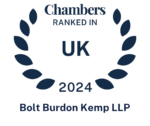Too little, too late: will the new government prevent further atrocities in the NHS, in the wake of the Shrewsbury and Telford NHS Trust scandal?
The election results are in and we now have a new government. Pledges have been made about what the government will do for the NHS. However only time will tell whether they are able to fulfill their promises and whether this will this be enough to save a NHS in crisis.
Particularly heartbreaking and shocking news emerged in November 2019 regarding the biggest maternity scandal the UK has ever seen involving failings of the Shrewsbury and Telford NHS Trust. An independent enquiry report leaked to The Independent newspaper revealed that, between 1979 and 2017, at least 42 babies and 3 mothers had died and at least 51 babies suffered brain damage due to failings of the Trust. This is truly shocking.
The enquiry is still ongoing and the number of mothers and babies catastrophically injured as a result of the Hospital’s negligence may well rise.
One of the identified failings and something that continues to be a problem for the Trust is a shortage of midwives. Whilst this was not the only identified failing, one cannot help but wonder if some of these atrocities could have been avoided if there had been more funding for NHS staff.
My colleague, Felicity Cottle, has recently written regarding the scandal and enquiry here. Felicity’s team specialises in claims involving stillbirth and physical and psychiatric injuries suffered by mothers.
I am a solicitor in the Child Brain Injury team. We specialise in compensation claims for babies who have suffered a brain injury before, during or after their birth as a result of clinical negligence. In this blog I focus on the latest news regarding the Shrewsbury scandal, how families might seek justice and how we as specialist lawyers might be able to help.
The Shrewsbury and Telford Hospital NHS Trust scandal
In July 2017, the government ordered an independent enquiry to be conducted, led by maternity expert, Donna Ockendon, to examine the poor maternity care provided to mothers and babies at the hospital.
An interim update report dated July 2017 warned that, despite historic failings in the treatment afforded to mothers and babies dating back as far as 1979, lessons had not been learnt and staff at the Trust were still not communicating properly with families. There was reference to “misplaced” optimism in a review conducted by the regulator in charge in 2007, which might have been a factor in why lessons were not being learnt. It suggests that the failings were not being taken seriously enough and that problems were being brushed under the carpet. There were also delays in the Trust publishing investigation reports, again suggesting a lack of openness.
A lack of openness is an issue we see time and time again in NHS scandals such as this. It begs the question: if NHS Trusts are not open about their failings, internally or externally, how can lessons ever be learnt? Inevitably, when things are brushed under the carpet, the same mistakes are going to be made time and time again.
The enquiry launched in July 2017 was only intended to cover 23 cases. However, once the enquiry began and information became available, this number grew to more than 270 ranging in date from 1979 to the present day. Indeed there may be many more cases that have not yet been identified.
The 270 cases identified so far involve 22 stillbirths, 3 deaths during pregnancy, 17 deaths of babies after birth, three deaths of mothers, 47 cases of substandard care and 51 cases of cerebral palsy or brain damage.
These 51 child brain injury cases include the following causes:
- Medical staff failing to identify or act upon signs that labour was going wrong
- Infections such as group B strep or meningitis not being properly diagnosed or treated. If diagnosed, these infections can often be treated with antibiotics.
The Shrewsbury and Telford NHS Trust was put into special measures in 2018 due to major concerns about maternity safety and conditions were imposed on the hospital – and remain imposed – including the possibility of unannounced inspections.
An inspection was carried out by the Care Quality Commission (‘CQC’) in April 2019, the results of which were published on 6th December 2019. This showed that in April 2019 the hospital was operating with 50 midwives short of what was safe. This amounted to a 26% vacancy of midwives.
This is quite shocking. Although the hospital has since recruited 29 new midwives and 2 new obstetricians, they remain 21 midwives short of the number required. It is disturbing to think that, despite the Trust knowing about its failings as far back as July 2017 when the first interim report was available and being in special measures since 2018, there still remained a shortage of over a fifth of required staff.
The ongoing enquiry into the biggest maternity scandal the country has ever seen is due to be finalised and reported on this year by maternity expert, Donna Ockendon.
Will justice be achieved?
Ms Ockendon has warned that not all the victims will be able to obtain answers for what happened to them or to their child due to records being unavailable. It is standard practice for medical records to be held by Trusts for no more than 25 years. In cases involving clinical negligence, lawyers, medical experts and Courts rely on medical records as key evidence as they are usually the only records kept at the time of the events taking place. Indeed medical staff have a duty to keep detailed medical notes of the treatment being provided to their patients. If these are not available, it can be very difficult to prove what happened at the time of the treatment. Memories fade and change over time so it is important to have written evidence where possible.
A lack of medical records may prevent someone from being able to bring a claim for compensation and to achieve justice for their child.
Another potential problem in cases involving clinical negligence is that there is a time limit for bringing a claim. For adults this is usually 3 years from the date of the injury. For children, they have until their 21st birthday.
However there may be ways around this. The time limit can also be 3 years from the date of knowledge of the negligence. There are likely to be many affected mothers and children who will not have known until very recently that they may have received negligent medical treatment – for example, through seeing reports of the NHS Trust’s failings in the news.
In addition, if there a good reasons for bringing a claim late, it may still be possible to bring a claim. Reasons for this may include not having the mental capacity to instruct solicitors.
How we can help
We as a firm do not shy away from bringing difficult claims, even where time limits for claims have expired, providing there are good reasons for this. Where the law restricts us from achieving justice for our clients, we campaign to change the law to remove the barrier between them and justice. Last year, our Abuse team campaigned to change the double jeopardy laws which prevent some of our clients bringing new claims for historic abuse they have suffered.
It is difficult to predict the outcome of Ms Ockendon’s enquiry and what action might be taken thereafter. However, we feel that victims should not have to wait for the outcome of this enquiry before seeking justice. If you feel you or your child may have suffered an injury as a result of medical mistakes, you should seek specialist legal advice as soon as possible.
Our team are always happy to have a free initial chat and, if we feel you or your child might have a claim, we will come out to see you – wherever you are in the country. We usually offer our clients a ‘no win no fee’ agreement so there is nothing to lose in seeking our advice.
There may be families out there who have not known until now that the care they or their child received was substandard. Sadly, we often see cases where communication and treatment has been so poor that families are left to manage on their own and they assume the mother’s or the child’s injuries are just “one of those things”. However we find our client’s gut instincts are often more accurate than they think. We can help parents get answers and we can seek compensation to fund their child’s vital and complex needs.
Final note
Whilst it is reassuring the government initiated this enquiry, for too many this is too little too late. Many lives over a period of 4 decades have been lost or catastrophically affected by the hospital’s shortcomings. Whilst a lack of funding may have played a role in the atrocities that took place at the Trust in question, there have been many other failings identified so far.
Following the outcome of the enquiry, the government will need to do more than just increase funds for the NHS. To avoid further incidents such as these, a complete culture shift will be needed. NHS Trusts will need to continue to enforce the duty of candour and openness and a learning culture will need to be at the heart of everything they do.
This NHS scandal is one of the worst this country has ever seen. It is hoped that lessons will finally be learnt, not just for Shrewsbury and Telford, but also for other NHS Trusts as more information is coming out into the open.
How we can help
In the Child Brain Injury Department we act exclusively for children who have suffered brain injuries. Our team has vast experience of acting for children who have been injured at birth.
We strive to seek compensation for children who have suffered avoidable brain injuries arising from medical negligence to meet amongst other things, their treatment, care, housing and therapy needs.
Footnotes:
- https://www.theguardian.com/society/2019/nov/20/doctors-may-face-suspension-over-nhs-worst-maternity-scandal
- https://www.shropshirestar.com/news/health/2019/11/27/shropshire-maternity-scandal-another-90-families-come-forward-with-claims/
- https://www.independent.co.uk/news/health/shrewsbury-maternity-scandal/shrewsbury-maternity-nhs-babies-deaths-care-a9231486.html
- https://www.telegraph.co.uk/news/2019/11/19/shrewsbury-telford-42-babies-three-mothers-died-nhs-trust-worst/
- https://www.telegraph.co.uk/news/2019/11/29/midwife-warns-full-extent-nhs-maternity-scandal-shrewsbury-telford/
- https://www.independent.co.uk/news/health/shrewsbury-maternity-scandal/shrewsbury-maternity-scandal-telford-midwives-babies-safety-cqc-a9234786.html







